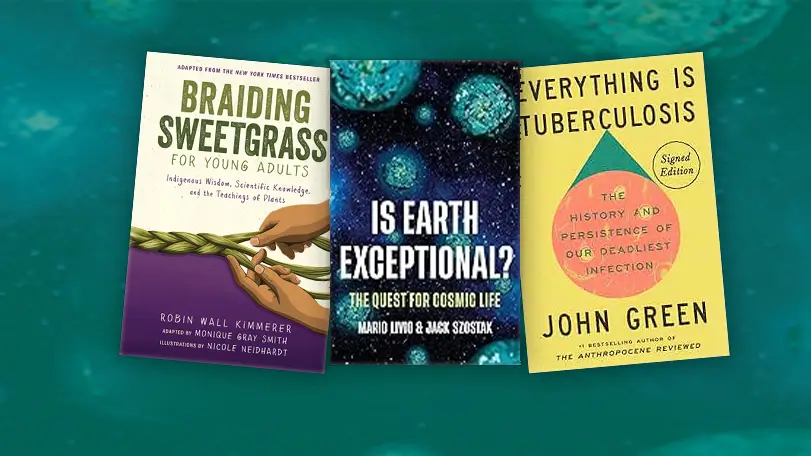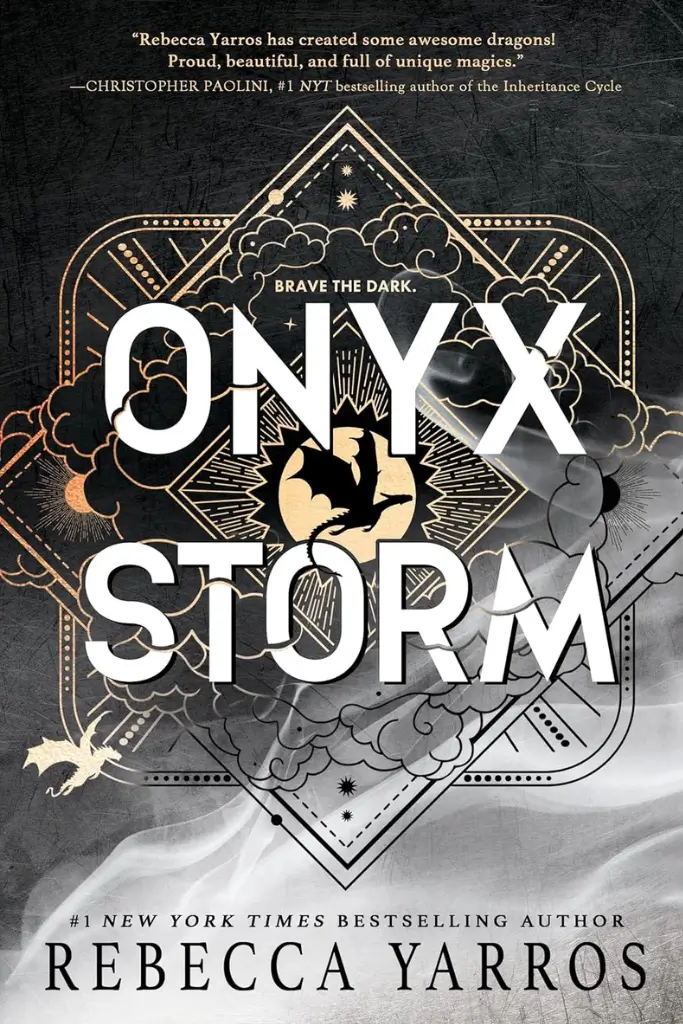14 Best Selling Science Books You Can Read in 2025

When it comes to science books, staying updated with the best-sellers can enrich our knowledge and spark curiosity. The New York Times offers an authoritative list of the most popular science books in the United States based on recent sales. This gives us insight into what topics are captivating readers right now.
For those looking for standout reads from the past year, the Smithsonian highlights the top ten science books of 2024. These books range from explorations of space disasters to studies of iconic trees, showing the diverse interests in science.
We’re also excited to see what lies ahead in 2025. With an extensive list of 73 must-read science books for the year, there’s something to engage every science enthusiast. Whether you’re new to the genre or a lifelong fan, these selections present fresh perspectives and groundbreaking insights.
Best Selling Sci Fi books Books of All Time
In our exploration of best selling science fiction books, we dive into works that have challenged our thinking and expanded our understanding of the world. Each book offers something unique, from personal and historical insights to scientific breakthroughs. Let’s explore the nuances and impact of these influential science books.
14. Is Earth Exceptional? by Mario Livio, PhD
Mario Livio’s book raises questions about our planet’s uniqueness. It challenges us to consider what factors make Earth special compared to other planets. Livio uses a mix of science and philosophy to engage readers, discussing technological advances and their implications for understanding Earth’s place in the universe. This thought-provoking read offers both scientific inquiry and philosophical perspectives, inviting us to explore our planet’s significance in the cosmos.
13. The 2025 Old Farmer’s Almanac Gardening Wall Calendar by Old Farmer’s Almanac
This almanac serves as both a calendar and a guide for gardeners. It provides monthly tips, historical insights, and weather predictions. Users find value in its regional planting charts and moon phases, which are believed to influence plant growth. This calendar appeals to gardening enthusiasts and those interested in climate patterns, making it a practical tool for planning and understanding seasonal changes.
12. Braiding Sweetgrass by Robin Wall Kimmerer
Robin Wall Kimmerer combines indigenous wisdom with scientific knowledge in this book. She emphasizes the relationship between humans and nature, urging us to learn from plants and ecosystems. Through stories and teachings, Kimmerer highlights the importance of gratitude and reciprocity with the Earth. This book resonates with readers who seek a deeper connection to the natural world and appreciate the blend of science and tradition.
11. Outlive by Peter Attia MD
In “Outlive,” Peter Attia reveals insights into longevity and health. He explores how lifestyle choices impact our lifespan and quality of life. Attia discusses preventive measures, personalized strategies, and medical advancements that can influence aging. For readers interested in health science, this book offers practical advice and scientific insights to optimize their health and extend their lives.
10. Everything Is Tuberculosis by John Green
John Green offers a unique take on his experiences with illness. The book delves into the broader societal and personal impacts of tuberculosis. Green uses storytelling to provide educational insights, blending his own journey with historical perspectives. This work is informative and heartfelt, giving us a personal view of how diseases can shape individuals and communities.
9. Dopamine Nation by Dr. Anna Lembke
Dr. Anna Lembke explores the addiction struggles in modern society and how dopamine is at the heart of our pursuits for pleasure. She combines case studies with research to demonstrate how our brains are wired for addiction. The book discusses strategies to find balance and make healthier choices in a world of temptations. It’s enlightening for those interested in neuroscience and behavioral science.
8. The Serviceberry by Robin Wall Kimmerer
Robin Wall Kimmerer uses the serviceberry plant as a metaphor for interconnectedness in nature. This work underscores the value of biodiversity and ecological relationships. Kimmerer draws from scientific and indigenous perspectives, reflecting on how we can live harmoniously with our environment. The book appeals to readers interested in ecology and sustainable living.
7. The Comfort of Crows by Margaret Renkl
In this narrative, Margaret Renkl shares her observations of nature and wildlife. Through personal anecdotes, she illustrates the beauty and struggles of the natural world. Renkl’s writing fosters a sense of wonder and appreciation for everyday creatures and plants. The book’s strength lies in its emotional connection with the flora and fauna around us.
6. The Untethered Soul by Michael A. Singer
Michael A. Singer’s work focuses on personal growth and consciousness. He guides us through understanding our inner thoughts and emotions. The book teaches how to achieve mental freedom by letting go of limiting beliefs. Singer’s approach combines psychology with mindfulness practices, offering a framework for those seeking deeper self-awareness and emotional balance.
5. Buried in the Sky by Peter Zuckerman
This gripping tale uncovers the stories of Sherpas during a tragic expedition on K2. Peter Zuckerman highlights the bravery and skill of these climbers amidst fatal conditions. The book provides insights into their culture and remarkable mountaineering abilities. It appeals to those fascinated by adventure, survival, and the human spirit’s resilience in adversity.
4. Sapiens: A Brief History by Yuval Noah Harari
Yuval Noah Harari provides a sweeping overview of human history. The book examines key developments that shaped our species from the earliest humans to modern societies. Harari blends anthropology, history, and sociology to explain humanity’s journey. This book is essential for understanding how past events continue to influence our present and future.
3. Thinking, Fast and Slow by Daniel Kahneman
Daniel Kahneman introduces us to two modes of thinking: fast, intuitive thoughts and slow, deliberate reasoning. His exploration of cognitive biases and decision-making is both enlightening and practical. Kahneman sheds light on why we think the way we do, offering valuable insights for improving judgment and understanding human behavior. The book is thought-provoking for anyone curious about psychology and human nature.
2. Merlin’s Tour of the Universe by Neil deGrasse Tyson
Neil deGrasse Tyson takes us on an engaging journey through the universe. He answers common questions about space and science with clarity and wit. Tyson’s explanations make complex concepts accessible, sparking curiosity about the cosmos in readers of all ages. It’s an educational guide for those eager to explore the wonders of our universe.
1. Quanta and Fields by Sean M. Carroll
Sean M. Carroll’s book dives into quantum mechanics and field theories. He explains fundamental physics concepts with simplicity and precision, providing readers with a deeper appreciation of how the universe operates at its most basic level. It’s a must-read for anyone interested in the scientific principles that govern reality.
Frequently Asked Questions
What are the top 10 best-selling science books currently?
Finding a definitive list can be challenging, but The New York Times Best Sellers offers an up-to-date ranking of the most popular science books based on recent sales in the U.S., which can also be listed under best selling books for men.
Which science books are considered a must-read for adults?
Books like “Sapiens” by Yuval Noah Harari and “Astrophysics for People in a Hurry” by Neil deGrasse Tyson are often recommended for adults. These books provide deep insights into their respective fields and are praised for their engaging writing styles.
What are the greatest scientific books ever written?
“The Origin of Species” by Charles Darwin and “A Brief History of Time” by Stephen Hawking are classic examples of books that have profoundly influenced scientific thought. Both are widely regarded as masterpieces in the scientific community.
What science books have been the best sellers in the past year?
Keeping track of last year’s best sellers can be enlightening as it shows current trends. For instance, the New York Times lists books consistently gaining yearly traction based on sales.
What are some popular science books that have shaped the genre?
Books like “Chaos” by James Gleick, featured on Book Scrolling, have been lauded for shaping the genre. Such books introduce complex scientific concepts in an accessible way.
Can you recommend a science book recognized as a significant contribution to science?
“Chaos” by James Gleick is a noteworthy recommendation. Celebrated as a groundbreaking bestseller, it presents chaos theory to a broad audience and is mentioned in various lists, including on Book Scrolling.

